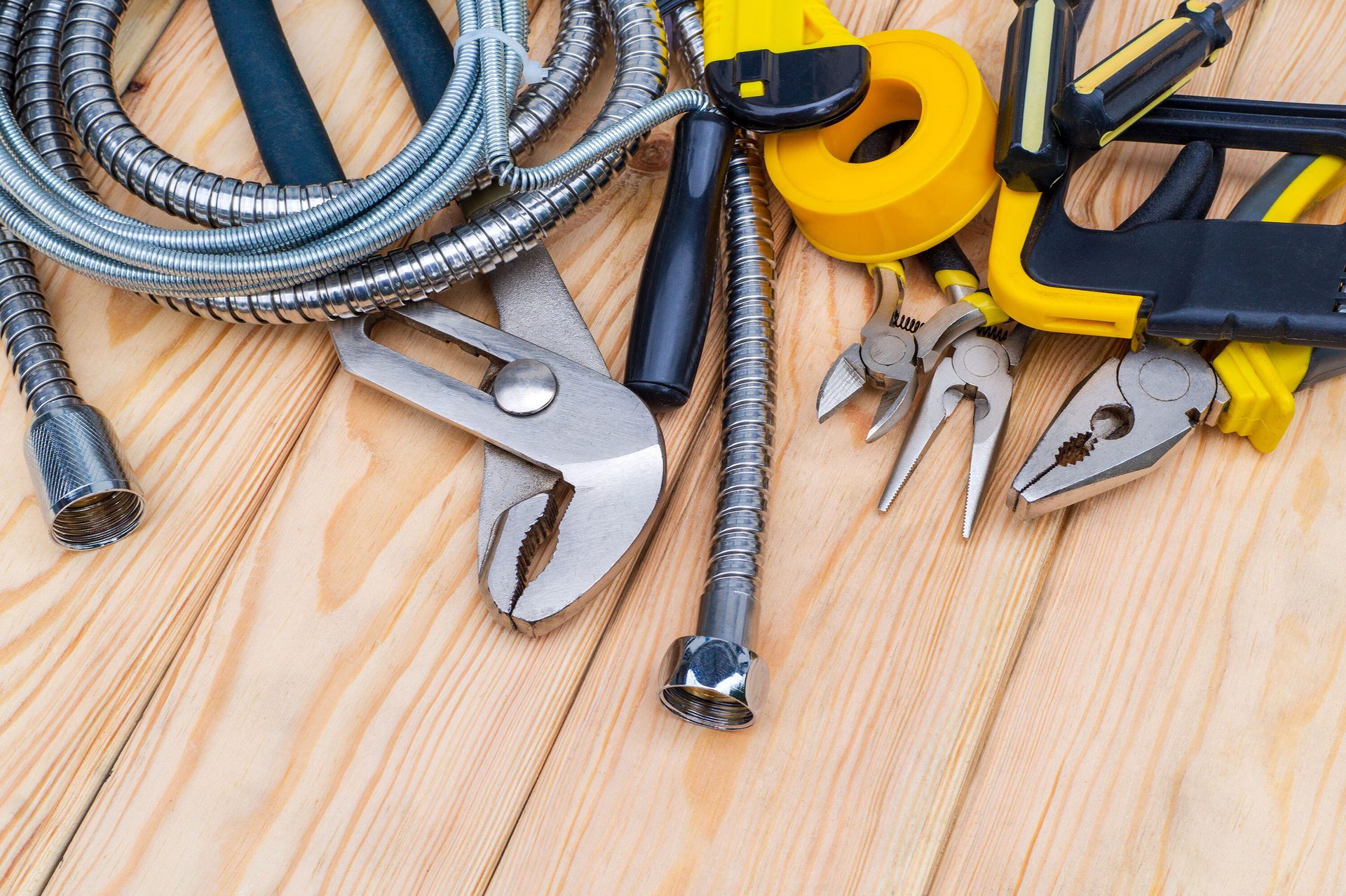EDITORIAL OPINION
BY KRISTEN BAYLES

Choose prevention over panic
Why preventive plumbing isn’t just a service; it’s the difference between a minor repair and a full-blown disaster.

Trades expertise in prevention is the key to keeping systems reliable, costs down and emergencies at bay. VITALII BORKOVSKYI / iStock / Getty Images Plus
You know when you freshly move into a new place and the "shiny-new" wears off and you can see all of the problems you missed initially? The list in my new apartment was, unfortunately, pretty extensive; electrical sockets that don’t work, the door to the office not closing, broken window blinds and – most importantly – a garbage disposal that doesn’t work.
According to the maintenance worker who came by, the last tenant decided to pour paint down the sink. We notified the apartment complex as soon as we noticed the problems back in June, and someone came by after a couple of days to tell us that they would need to completely replace the system.
We’ve been making do with using the dishwasher – which is connected to the garbage disposal, so it also doesn’t work – as a glorified drying rack. We haven’t used the garbage disposal or the dishwasher in months, but apparently, that wasn’t enough.
I was on a weekend trip when I got a call on Sunday morning that the apartment below us was being flooded from our apartment’s problem appliances, despite us having refrained from using it for weeks at that point. We felt absolutely horrible for the apartment below us (luckily, my homemade chocolate chip cookies can smooth over any bad blood), especially because we’d had an apartment flood not too long ago.
It was an unpleasant surprise for our neighbors, but it also underscored a bigger truth: plumbing systems don’t stop being a risk just because no one is using them. Deferred maintenance, quick fixes and ignored replacement needs can all snowball into costly damage — not just for one unit, but for everyone downstream.
For plumbers and tradespeople, this story will sound familiar. Too often, they’re called in only after the emergency has already hit. But their expertise in prevention and proper system design is every bit as critical as their skill in fixing the flood.
A proactive replacement of the garbage disposal months earlier would have eliminated the risk entirely. A routine inspection could have flagged the weak points before they failed. Educating tenants about proper system use — no paint down the drain, ever — might have stopped the problem at its source. These small preventive steps cost far less than an emergency service call, a flooded apartment, and the ripple effects that follow.
Most plumbing emergencies don’t start as disasters. They start as small, overlooked issues: a tenant using a system improperly, a fixture that should have been replaced but wasn’t, or a maintenance request that gets pushed to the bottom of the list. Left unchecked, these “little” problems can escalate quickly, often taking out more than one unit or system along the way.
Take the garbage disposal that's currently sitting dormant in my apartment after the previous tenant poured paint down the drain. The property manager knew it needed to be replaced, but months went by without action. On the surface, it didn’t seem urgent — we aren't using it, after all. But, water doesn’t wait. Eventually, the faulty disposal created a minor flood in the apartment below ours, creating a problem far more disruptive and costly than a straightforward replacement would have been.
That’s why prevention is one of the most valuable services a plumber or contractor can provide. A scheduled inspection might uncover a worn-out disposal or a slow leak before it causes downstream damage. Proactive replacements, though sometimes hard for property managers to justify, often cost far less than the repairs, insurance claims and tenant disruption that follow an emergency.
Education is another key piece of prevention. Tenants may not realize the long-term consequences of pouring grease, paint or other harmful materials down a drain until it results in a system failure. Taking time to inform them about what not to flush, drain, or dispose of can reduce the risk of catastrophic clogs or equipment damage.
That’s why prevention is one of the most valuable services a plumber or contractor can provide. A scheduled inspection might uncover a worn-out disposal or a slow leak before it causes downstream damage.
Educating your clients on preventative maintenance is key to avoiding costly emergencies in the future. Make sure they know that:
- Water is never “off-duty.” Even if a fixture or appliance isn’t being used, water pressure, aging seals, and hidden wear can still cause leaks or failures. Dormant systems still need attention.
- Small problems become big ones fast. A slow drip, minor clog or outdated disposal may seem harmless now, but left alone, it can lead to flooding, structural damage or mold — which cost far more than fixing the issue early.
- Manufacturer lifespans matter. Water heaters, disposals and pumps all have expected service lives. Replacing equipment proactively — before the failure — is usually cheaper and far less disruptive.
- Misuse is preventable. Educating tenants or staff is part of maintenance. Remind clients that things like grease, paint, “flushable” wipes, and food scraps in drains cause many of the problems plumbers are called to fix.
- Annual checkups save money. Just like cars need oil changes, plumbing systems benefit from yearly inspections: checking for leaks, testing water heaters, flushing sediment, and verifying shutoff valves.
- Good records prevent emergencies. Encourage clients to keep a maintenance log of past work, inspections and replacements. That way, problems don’t get overlooked, and tradespeople can track when something is due for service.
- Prevention is cheaper than restoration. Clients may balk at a replacement or service call, but remind them: it’s always less expensive to replace a $300 disposal today than repair a $30,000 flood tomorrow.
Clear communication between tradespeople, property managers and building owners is essential. When plumbers are empowered to recommend preventive action — and those recommendations are taken seriously — it saves money, reduces liability, and keeps tenants happy. In many cases, it also saves the tradesperson from having to deal with a frantic, middle-of-the-night emergency call that could have been avoided altogether. No one likes to get out of bed for a malfunctioning sink!
In the trades, it’s easy to be seen as the person who shows up when something breaks. But, the real measure of expertise often comes before the emergency call ever happens. Preventive work, whether it’s routine inspections, early equipment replacement, or helping clients understand proper system use, is where plumbers shine.
In the end, prevention isn’t just about avoiding headaches. It’s about asserting the value of skilled labor and professional expertise. Water will always find the path of least resistance, but so should the trades: guiding clients toward solutions before disaster strikes, and proving that the only good emergency is the one that never happens.
Prevention doesn’t always make headlines, but it is the foundation of safe, reliable plumbing systems. In this industry, the smartest move is often the simplest one: fix the problem before it becomes a crisis.
Kristen Bayles is the Associate Editor for Plumbing & Mechanical and Supply House Times. Originally from Monroeville, Alabama, her family worked in the plumbing industry for many years. Kristen holds a Bachelor’s degree in English with a specialization in Language and Writing from the University of Montevallo. Prior to joining BNP in 2025, she worked as an editor in the jewelry industry.
